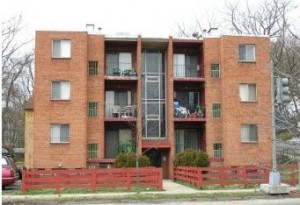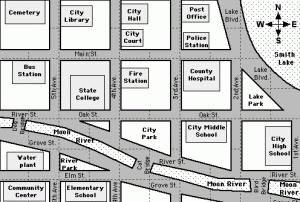Posted by Teresa on July 30, 2010 under Landlord Tips | 
 When a property is advertised to be sold “as is,” it can mean a great bargain, or a barrel full of trouble. But is the “as is” designation always a deal-breaker?
When a property is advertised to be sold “as is,” it can mean a great bargain, or a barrel full of trouble. But is the “as is” designation always a deal-breaker?
Not to many savvy rental property investors. “As is” simply means the sellers don’t guarantee the property’s condition and won’t be making any repairs. It doesn’t always mean that something is wrong with the property.
Sometimes there is nothing wrong—the sellers just aren’t up for extended negotiations over replacing gutter straps and repairing a chip in the trim paint. “As is” could also mean the sellers just don’t have any cash to make repairs, or they need every penny of the proceeds of the sale.
It’s perfectly acceptable to ask the seller’s agent why the property is being sold “as is.” Then, when you know, you can decide whether or not to continue with your due diligence. Of course, major defects must be disclosed, like leaking pipes, a bad roof or drainage problems. If the sellers elect not to provide the disclosure, that’s a bad sign.
If you decide to go ahead with an offer, it should be contingent on giving you plenty of time to conduct professional inspections for mold and insects, as well as a general home inspection. If the inspections reveal any major issues, you can still walk away. If small problems are exposed, it’s okay to ask the sellers to cover the repair expenses. They might not, but you never know.
While “as is” homes are a gamble, they are certainly not something rental property buyers should exclude from consideration in every case. Ask your fellow landlords about their experiences, get advice from trusted advisors, and proceed with caution!
Posted by Teresa on December 21, 2009 under Housing Trends, Landlord Tips | 
Some real estate investors are always looking for the next hot market for rentals. Others prefer to keep their purchases of investment property close to home—so they can better manage their properties. Still others are sitting this market out—waiting for home values and rents to stabilize before even thinking about buying additional properties.
Here are a few ideas to consider if you’re going to be searching for investment properties.
Values exist in almost every city or town. Look for older, yet safe neighborhoods that are obviously kept up by owners. Lower home prices often mean better cash flow.
Keep your eyes and ears open for activity. Is your city is planning a rezone of a particular area? Is a previously designated commercial district going residential? Or is an improvement project planned for a particular area? Knowing what’s going to happen can make a big difference In whether an area is poised for rental property growth or decline.
Areas that have been devastated by overbuilding and plummeting employment are ripe for the picking. Bargains will abound in depressed housing markets like Las Vegas and larger cities in California.
If you’re considering buying away from where you live, add in the cost of a property management company to your calculations.
Go where the jobs are. The idea is to pay attention to announcements of large-scale hiring, plant openings, or relocations. Examples are the new Boeing plant to be built near Charleston, SC, or the purchase of the prison in Thomson, Illinois by the federal government. You can even set up a Google alert to tell you when any mass hiring article hits the internet! When the picture starts improving, notice what states have the highest jumps in employment rates.
Go where the students are. We’ve covered the pros and cons of renting to students before. But the rental markets in college towns tend to be more stable—students will always need a place to live, which is a big plus!
 Some real estate investors are always looking for the next hot market for rentals. Others prefer to keep their purchases of investment property close to home—so they can better manage their properties. Still others are sitting this market out—waiting for home values and rents to stabilize before even thinking about buying additional properties.
Some real estate investors are always looking for the next hot market for rentals. Others prefer to keep their purchases of investment property close to home—so they can better manage their properties. Still others are sitting this market out—waiting for home values and rents to stabilize before even thinking about buying additional properties.
Here are a few ideas to consider if you’re going to be searching for investment properties.
- Values exist in almost every city or town. Look for older, yet safe neighborhoods that are obviously kept up by owners. Lower home prices often mean better cash flow
- Keep your eyes and ears open for activity. Is your city is planning a rezone of a particular area? Is a previously designated commercial district going residential? Or is an improvement project planned for a particular area? Knowing what’s going to happen can make a big difference In whether an area is poised for rental property growth or decline
- Areas that have been devastated by overbuilding and plummeting employment are ripe for the picking. Bargains will abound in depressed housing markets like Las Vegas and larger cities in California.
- If you’re considering buying away from where you live, add in the cost of a property management company to your calculations.
- Go where the jobs are. The idea is to pay attention to announcements of large-scale hiring, plant openings, or relocations. Examples are the new Boeing plant to be built near Charleston, SC, or the purchase of the prison in Thomson, Illinois by the federal government. You can even set up a Google alert to tell you when any mass hiring article hits the internet! When the picture starts improving, notice what states have the highest jumps in employment rates.
- Go where the students are. We’ve covered the pros and cons of renting to students before. But the rental markets in college towns tend to be more stable—students will always need a place to live, which is a big plus!
We recommend you also automatically screen all tenants as part of your application process. For more landlord resources, including forms and information on tenant screening, turn to E-Renter.com. .
 When a property is advertised to be sold “as is,” it can mean a great bargain, or a barrel full of trouble. But is the “as is” designation always a deal-breaker?
When a property is advertised to be sold “as is,” it can mean a great bargain, or a barrel full of trouble. But is the “as is” designation always a deal-breaker?